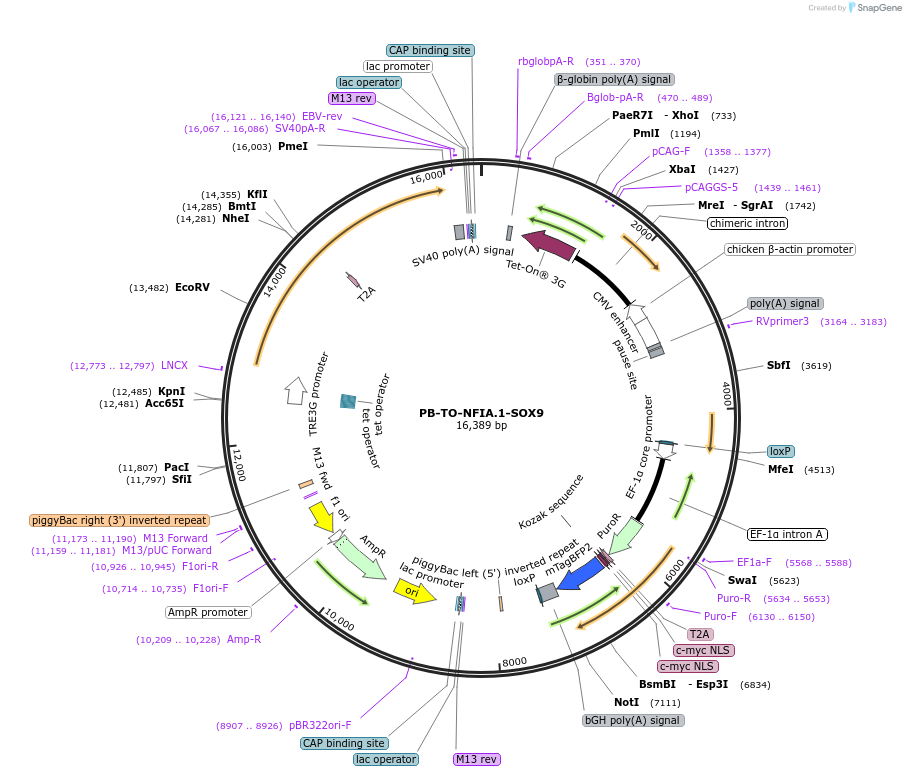-
PurposePiggybac Tet-ON plasmid for differentiating hiPSCs into astrocytes via NFIA and SOX9 expression
-
Depositing Labs
-
Sequence Information
Ordering
| Item | Catalog # | Description | Quantity | Price (USD) | |
|---|---|---|---|---|---|
| Plasmid | 182310 | Standard format: Plasmid sent in bacteria as agar stab | 1 | $89 | |
Backbone
-
Vector backbonepUCM
- Backbone size w/o insert (bp) 13000
- Total vector size (bp) 16660
-
Vector typeMammalian Expression ; PiggyBac
-
Selectable markersPuromycin
Growth in Bacteria
-
Bacterial Resistance(s)Ampicillin, 100 μg/mL
-
Growth Temperature37°C
-
Growth Strain(s)DH5alpha
-
Copy numberHigh Copy
Gene/Insert 1
Cloning Information for Gene/Insert 1
- Cloning method Restriction Enzyme
- 5′ cloning site KpnI, Acc65I (not destroyed)
- 3′ cloning site PmeI (unknown if destroyed)
- 5′ sequencing primer ccgtaccacttcctaccctc
- 3′ sequencing primer caagttggggtgggcgat
- (Common Sequencing Primers)
Gene/Insert 2
-
Gene/Insert namepuroR-T2A-mycNLS-mTagBFP2
-
Insert Size (bp)1473
- Promoter EF1a
-
Tag
/ Fusion Protein
- T2A-mycNLS-mTagBFP2
Cloning Information for Gene/Insert 2
- Cloning method Restriction Enzyme
- 5′ cloning site SwaI (not destroyed)
- 3′ cloning site NotI (not destroyed)
- 5′ sequencing primer TCAAGCCTCAGACAGTGGTTC
- 3′ sequencing primer CCCCCAGAATAGAATGACACC
- (Common Sequencing Primers)
Resource Information
-
Supplemental Documents
-
A portion of this plasmid was derived from a plasmid made byMichael Ward Lab
Terms and Licenses
-
Academic/Nonprofit Terms
-
Industry Terms
- Not Available to Industry
Trademarks:
- Zeocin® is an InvivoGen trademark.
These plasmids were created by your colleagues. Please acknowledge the Principal Investigator, cite the article in which the plasmids were described, and include Addgene in the Materials and Methods of your future publications.
-
For your Materials & Methods section:
PB-TO-NFIA.1-SOX9 was a gift from iPSC Neurodegenerative Disease Initiative (iNDI) & Michael Ward (Addgene plasmid # 182310 ; http://n2t.net/addgene:182310 ; RRID:Addgene_182310)







